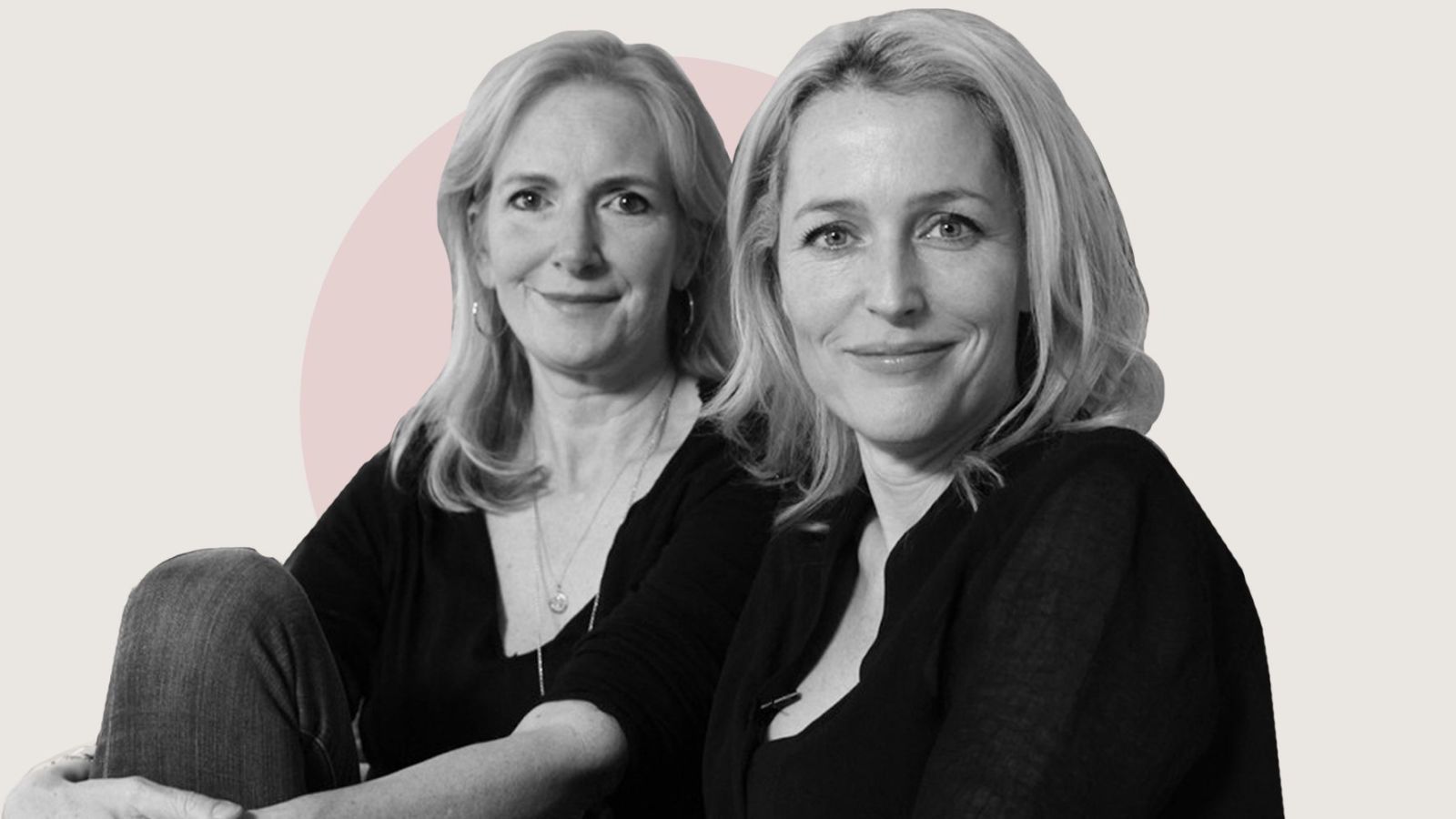Gillian Anderson and Jennifer Nadel: We Need a New Kind of Politics
In a personal essay for MarieClaire.com, the actress and author make the case for overcoming our righteous indignation, judgment, and contempt for those we disagree with.

On January 21, we marched along with millions of women around the world. And we will march again. Often. To stand up for what is right, to oppose what is wrong and to show those who have the most to fear that they're not alone. We are with them and that we are for them.
But as we step up our activism, there's a particular challenge we all face: How do we support what we believe in without inadvertently building walls of our own? Walls made not of concrete and barbed wire, but of righteous indignation, judgment, and contempt.
We find ourselves locked in a binary system. If we're right, someone else must be wrong. If we're good, someone else must be bad. This attitude is fueling the very divisions we want to heal.
Being right in and of itself is not enough to change our world. We need to build bridges, not walls, and listen—even when our ego would have us hate.
So, how do we practice a new kind of politics? Specifically, one which doesn't harden the fault lines that have recently become so shockingly apparent. One that doesn't just call for love and tolerance but actually realizes those values on a daily basis. It comes down to fostering compassion in the face of fear and hate.
Anger can be intoxicating, especially when fueled by moral superiority. It's also a vital and necessary emotion; the engine that we need to pull the carriages of social and political change. But when we let anger harden into resentment and judgment, we discover that those who fight against discrimination, discriminate themselves. That instead of understanding, we condemn.
If we're indeed asking for a new kind of politics we must also be willing to look inside ourselves, because within each of us is a perfect microcosm of society at large. Our egos are often better disguised than many of our politicians', but they're still there, stoking the fires of bitterness within us. We're hurting so we criticize, we're unheard so we shout, we're mistreated so we fight back. We dress gossip up as analysis. We may not use knives or bullets, but words and thoughts are capable of unique violence.
"We're hurting so we criticize, we're unheard so we shout, we're mistreated so we fight back. We dress gossip up as analysis. We may not use knives or bullets, but words and thoughts are capable of unique violence."
Being right in and of itself is not enough to change our world. We need to build bridges, not walls, and listen—even when our ego would have us hate. This means we have to keep reaching out to those whom we disagree with, even when our intellect would have us dismiss them. This takes more than just marching. It takes looking inside ourselves and being honest about what we see.
Get exclusive access to fashion and beauty trends, hot-off-the-press celebrity news, and more.
The Sufi philosopher Rumi provides a way forward: "Beyond wrongdoing and right doing there is a field. I'll meet you there." That is our real challenge: to resist the pull of our indignation and the seductive rightness of our views. To stand up for our values while maintaining an open heart and mind. Only then can we begin to heal the divisions that this presidency has laid bare.
Award-winning actor Gillian Anderson and journalist Jennifer Nadel are the authors of We: A Manifesto for Women Everywhere.
Follow Marie Claire on Facebook for the latest celeb news, beauty tips, fascinating reads, livestream video, and more.